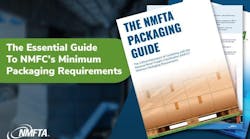The ability to place tolls on our highways is more of a political process than an economic one. News to everyone, I'm sure. However, the recent move to open taxation on the entire Interstate system will lead to unintended consequences. I say the entire Interstate system because once the door is open — it's open.
A toll is actually one of the simplest forms of a user tax. If you don't use the product — in this case, the highways — you don't pay the toll. The tax is designed to capture enough revenue to maintain and improve existing roads.
However, sometimes the revenues collected exceeded the purpose they were established for, and the excess ended up in the general coffers. Or, as I like to call it, the black hole of taxation because the funds that emerge from it can't be even remotely related to a source.
There are two issues we need to resolve. The first is that the fuel taxes and registration fees paid are generally more than enough to maintain and provide for modest improvements to our highway system. In spite of the fact that these funds are earmarked specifically for the highways, more often than not they're used for something other than our nation's infrastructure.
One way to ensure that the funds are not accessed in full is to put barriers in place, such as co-pays and environmental impact studies. Without passing judgment as to whether or not the barriers are necessary, they do serve as a means to prevent the free flow of funding.
This places an economic distortion on the original purpose of user fees and general-purpose funds. If general-purpose funds are used for the benefit of the population at large, then it's fair to assume that the population at large will seek to provide the level of funding that best fits their needs. The ability to tap other funds, e.g., user fees, distorts the economics of the process.
But enough of the theoretical. Let's look at how this distortion will actually affect “where the rubber meets the road.” Research on the Interstate system has consistently demonstrated that it benefits our economy in several ways.
For example, one major benefit is reduced travel time and the efficiency it brings, as well as the positive impact more efficient travel has on the environment. If you stay in traffic longer or use more circuitous routes, it'll cost you more and spew more pollutants into the air.
Another benefit is the ability to transfer goods from one location to another — in spite of great distance — and thus provide economic choice for the consumer.
Here's where the unintended consequences come in. If you put tolls on the apples coming from the state of Washington to my local supermarket in Daytona Beach, FL, I'm more likely to use my scarce discretionary income to buy the apples that come from North Carolina. Additional transportation costs incurred as a result of the cross-country highway tolls could make the Washington apples less competitive in the marketplace.
Another unintended effect of toll roads is the diversion of traffic from an efficient system to a less efficient one. This results in a geometrical increase in congestion on roads just off the Interstates, with further lost time and increased pollution in local traffic areas. We've seen the scenario time and time again: When tolls go up, traffic on the toll road decreases and traffic on the local parallel roads increases.
The bottom line is that economics always has the final word. Traffic will go where the costs are lower; it won't go where the economics cause transportation costs to rise.


